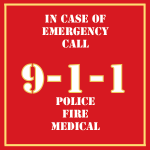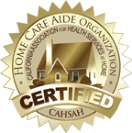911 was introduced in 1968 as a universal number for reaching emergency assistance. The current 911 system was designed to provide a universal, easy-to-remember number for people to reach police, fire or emergency medical assistance from any phone in any location, without having to look up specific phone numbers.
A call to 911 should involve a true emergency, a situation that requires urgent care by medical professionals. You should call 911 if someone is unconscious, gasping for air or not breathing, experiencing an allergic reaction, having chest pain, having uncontrollable bleeding, or any other symptoms that require immediate medical attention. Be proactive by knowing the warning signs of strokes and heart attacks.
Calling 911 is almost always the fastest route to get lifesaving treatment. Contact 911 immediately if there is anything that you don’t think you can handle or if a delay in care could result in adverse outcome. When you dial 911, remain as calm as possible and relay the following information clearly: your name, the phone number you are calling from, the nature of the emergency, location of the emergency, what has happened, the victim’s name and age, obvious injuries and the victim’s apparent condition, and any known medical history. Let the call-taker guide the conversation; he or she is trained to help you determine the extent of the emergency and the best actions for proper care of the victim.
Prevention is key to eliminating emergencies. If you are a care provider, advise your client to accident-proof his or her home. Hand rails, nonskid surfaces, and adequate lighting can help prevent falls. Throw rugs and other objects that can cause your client to trip. Electrical cords should be in good repair with no frayed cords. Keep a list of your client’s medications, allergies, and special needs with their list of emergency numbers. This can save time and provide valuable information for emergency medical personnel.








